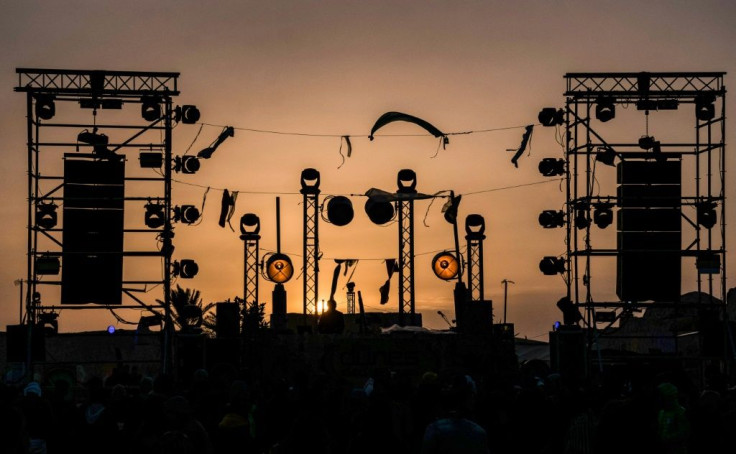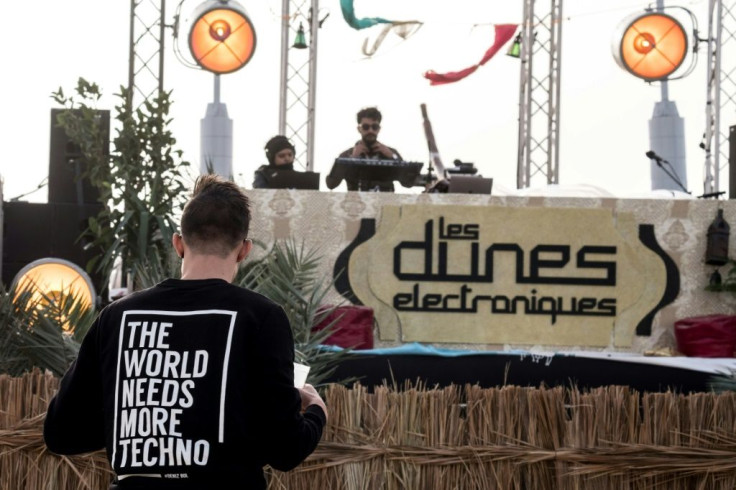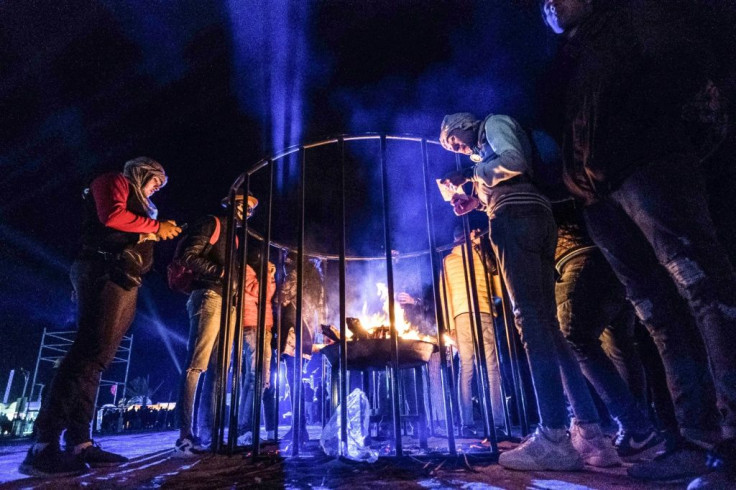In Desert Dunes, Electro Fans Rave About Tunisia Tourism

Bass rhythms boom out across the Tunisian Sahara toward a herd of camels, lasers splash colours across the dunes and VIPs sip vodka in what was once a "Star Wars" movie set.
The Dunes Electronique music festival, launched in 2014, was revived last weekend on the set where US director George Lucas created the desert planet of Tatooine.
The festival marked a joyous and noisy comeback after a three-year silence following several deadly jihadist attacks in the North African country which also badly hit its tourism sector.
In a sign of the growing appeal of the remote Saharan region and its other-worldly landscapes, more than 20 international and local DJs and thousands of revellers converged on the desert site of Ong Jmal in southwest Tunisia for the two-day extravaganza.
"We had already visited Tunis, but this time we came all the way here for the festival," said Leopold Poignant, a 22-year-old student from Paris who planned to also visit the nearby oasis town of Tozeur after the party.
He said they were drawn by DJs like Adam Port and Konstantin Sibold, "but we've also come for the experience. This is a Star Wars setting, and partying in the dunes is really something."
The event was held around the circular constructions built 20 years ago as settings for the Star Wars space-opera.
Ong Jmal is the best known of several sites in Tunisia where Lucas shot scenes of the youth of his hero Luke Skywalker. Each year, tens of thousands of tourists walk through the sand-swept set taking selfies.

As music played non-stop for 30 hours, those not dancing were huddled in nomadic tents set up as "chill zones" or, given the very real night-time desert chill, around camp fires.
Most of the 5,000 revellers were Tunisians, some of whom had never visited the area before.
"I'm a city girl, I don't like these traditional areas, but now there are many events in the south so I ended up coming," said Zoubeida.

Army and police were deployed around the party site, located less than 40 kilometres (25 miles) from the Algerian border.
The 2011 revolution which toppled longtime autocrat Zine El Abidine Ben Ali and the jihadist attacks that killed dozens of tourists in 2015 dealt a heavy blow to Tunisia's vital tourism sector.
Although the south was not directly targeted in the attacks, visits to the region have dwindled to mostly one-night outings from coastal resorts.
"The biggest number of tourists now are Russians, and they only buy water on their way to the desert," said Nagga Ramzi, a shopkeeper with kohl-lined eyes.
"It's hard. There's nothing here but dates... and tourism."
Years after the attacks, large-scale tourism has returned to Tunisia and the south hosts a growing number of events.
A Saharan ultra-marathon, the Tozeur International Film Festival and a Sufi music festival called Rouhaniyet have all been launched.
Hotels are more often fully booked, and tourists are starting to stay a little longer.
Visitor numbers have grown continuously over the past three years, according to Tozeur's tourism commissioner, Yasser Souf.
For January 1-October 30, the number has grown by 27 percent, compared to the same period of 2019.
Some hotels are reopening, smaller guest houses have multiplied and Thai luxury hotel group Anantara is launching a five-star palace at the end of December.
Salah Akkoun, a horse carriage driver, hopes tourists will patronise local businesses and learn to "take their time" in the desert.
© Copyright AFP {{Year}}. All rights reserved.





















